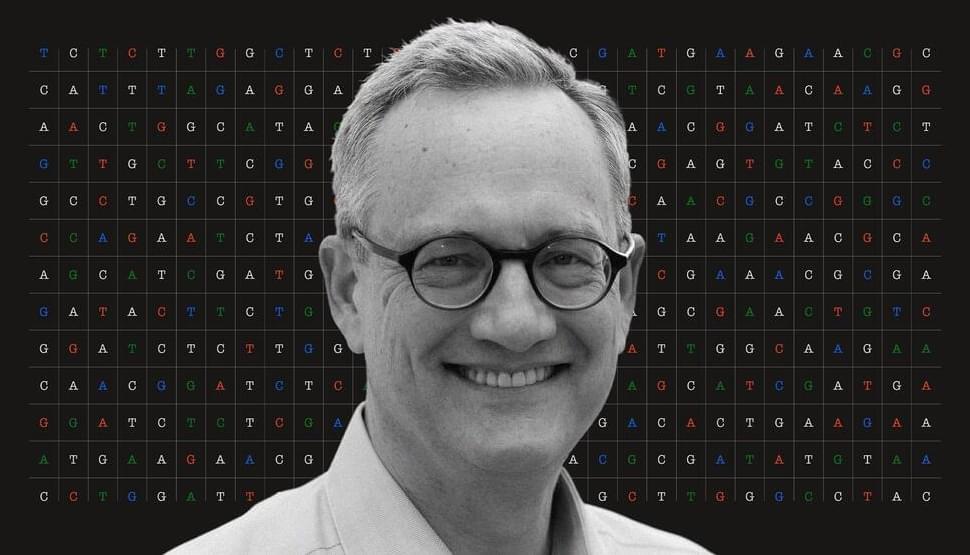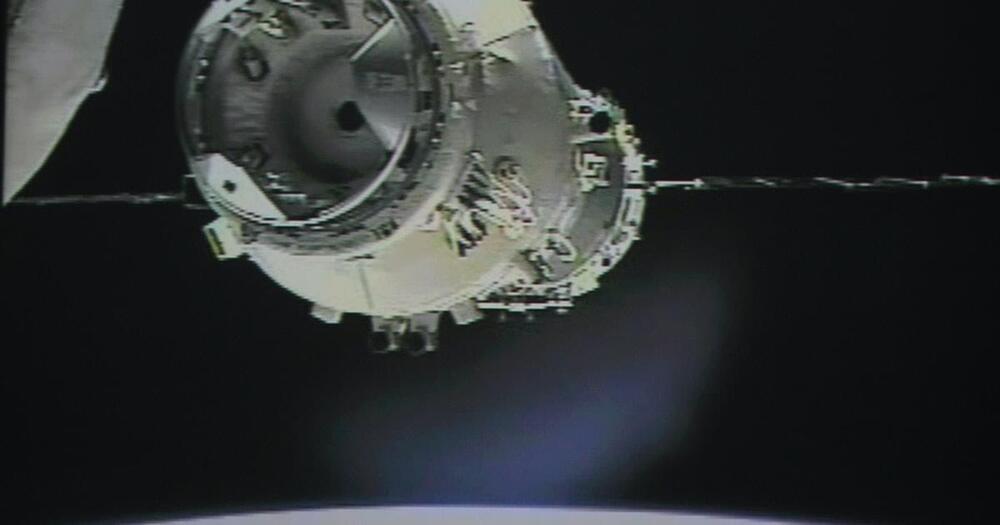INDIANAPOLIS (WISH) — The survival rate for patients diagnosed with pancreatic cancer is grim. The average survival time is up to 3 and a half years. Scientists may have a cure in the form of a vaccine thanks to scientists at Memorial Sloan Kettering Cancer Center in New York.
ANOTHER solar flare has a chance of hitting Earth today.
A huge expulsion of particles from the Sun hit Earth yesterday and we could see a similar geomagnetic storm causing event today.
The experts at SpaceWeather.com explained: NOAA forecasters say there is a 25% chance of M-class solar flares today.
The structure of how DNA is stored in archaea makes a significant difference to how quickly it evolves, according to a new study by Indiana University researchers.
The study, led by molecular biologist Stephen Bell, Distinguished Professor and chair of the College of Arts and Sciences’ Department of Molecular and Cellular Biochemistry at Indiana University (IU) Bloomington, was recently published in Nature Microbiology. Its findings have the potential to impact research on the treatment of genetic diseases such as cancer.
“The most exciting thing we revealed is the idea that the shape of a DNA molecule can affect its ability to change,” Bell said. “In the early 20th century, modernist architecture had the idea that the form of a building should follow its function. But what we’re seeing in these organisms is that over time, form is actually affecting evolution. How DNA is structured can change it, creating an evolutionary feedback loop.”
A new hack called Hertzbleed can read snippets of data from computer chips remotely and could leave cryptography algorithms vulnerable to attack.
John Leonard built Intellia Therapeutics with Jennifer Doudna, the Nobel Prize-winning scientist who pioneered gene editing technology. Intellia has figured out how to alter disease-causing genes inside patients, but before any breakthrough treatments come, it must cure itself of financial ills.
The narrow-band electromagnetic signals detected by Sky Eye — the world’s largest radio telescope — differ from previous ones captured and the team is further investigating them, the report said, citing Zhang Tonjie, chief scientist of an extraterrestrial civilization search team co-founded by Beijing Normal University, the National Astronomical Observatory of the Chinese Academy of Sciences and the University of California, Berkeley.
It isn’t clear why the report was apparently removed from the website of the Science and Technology Daily, the official newspaper of China’s science and technology ministry, though the news had already started trending on social network Weibo and was picked up by other media outlets, including state-run ones.
In September 2020, Sky Eye, which is located in China’s southwestern Guizhou province and has a diameter of 500 meters (1,640 feet), officially launched a search for extraterrestrial life. The team detected two sets of suspicious signals in 2020 while processing data collected in 2019, and found another suspicious signal in 2022 from observation data of exoplanet targets, Zhang said, according to the report.
China said its giant Sky Eye telescope may have picked up signs of alien civilizations, according to a report by the state-backed Science and Technology Daily, which then appeared to have deleted the report and posts about the discovery.
Ten years ago today, China sent a crew to its thus-far unoccupied Tiangong-1 space station. When the crew arrived two days later, the nation joined Russia and the United States in a rarified spacefaring club that marked the beginning of China’s space ascent.
On June 16, 2012, the China Manned Space Agency launched the Shenzhou-9 mission. Its three-person crew — commander Jing Haipeng, major Liu Wang, and China’s first woman in space, major Liu Yang — flew into Earth orbit atop a Long March rocket from Jiuquan Satellite Launch Center near Mongolia in the Gobi Desert. They successfully docked with China’s Tiangong-1 space lab on June 18.
It was a long time coming. In 2008, China successfully docked its Shenzhou 8 craft to the Tiangong-1 space station. But both the space station and its new addition were uncrewed, guided on the ground by mission control. That left it up to the Shenzhou 9 crew to make history by taking it literally into their own hands. Taikonaut Liu Wang piloted Shenzhou 9 toward Tiangong-1, easing into position for a soft docking. After securing various bolts and locks, ground control began equalizing the air pressure between the capsule and station. Three hours later, the crew entered the station.
The U.S. Food and Drug Administration (FDA) has approved baricitinib (trade name Olumiant), a drug that restores hair growth and can be used as a treatment for alopecia areata.
A school in southeastern Massachusetts latches onto a novel program that uses canines to sniff out COVID on surfaces. The idea is to help protect kids from the virus and keep the school open.
All these images were generated
Posted in robotics/AI
Text-to-image AI systems are going to be huge.
Google has released its latest text-to-image AI system, named Imagen, and the results are extremely impressive. However, the company warns the system is also prone to racial and gender biases, and isn’t releasing Imagen publicly.









